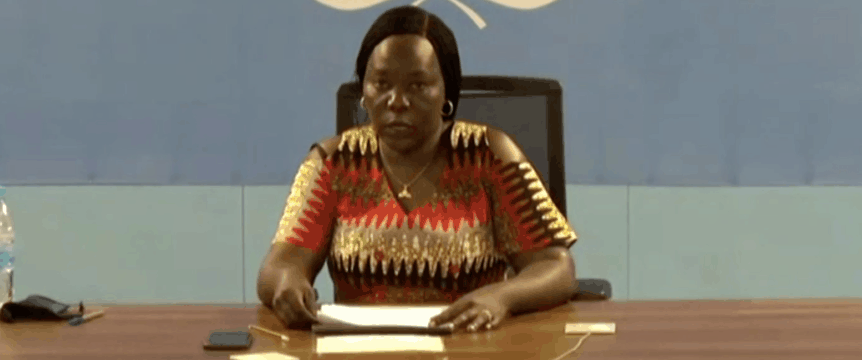A report by the Center for Inclusive Governance, Peace, and Justice (CIGPJ) has highlighted a significant decline in the implementation of gender quotas in South Sudan, raising concerns over the country’s adherence to the 35% women’s affirmative action policy.
The report, titled women’s political participation in south Sudan, underscores the need to strengthen women’s political participation as a vital component of the nation’s democratic development.
Published in October this year, the report calls for South Sudan to adopt a 50:50 gender equality agenda. It argues that the current 35% gender quota is insufficient and falls short of international targets for equal representation in decision-making roles.
During the launch of the report on Thursday, Grace John Kenyi, the organization’s consultant, emphasized that the 35% target does not align with international standards, particularly those outlined in the Maputo Protocol.
“This target does not conform to global commitments under CEDAW, the Maputo Protocol, the EAC Treaty, and Goal 5 of the Sustainable Development Goals. As discussions about the new constitution unfold, it is essential to consider a transition from a 35% quota to a 50:50 gender equality principle,” she said.
The report also points to the lack of an implementation framework for the 35% gender quota, which limits the diversity of women represented in political positions. According to the findings, adopting the 50:50 gender equality principle in the new constitution would align South Sudan with global standards for women’s representation, driving transformative change and embedding gender parity as a core governance principle.
Jackline Nasiwa, Executive Director of CIGPJ, expressed concern about the declining number of women in political positions. She lamented that when women are removed from their roles, men are often appointed as replacements.
“Although there has been some progress in women’s participation in South Sudan, the challenges remain significant,” Nasiwa said. “Women’s empowerment and representation have made strides, but comparing the progress to the ongoing challenges, it is clear that we still face enormous obstacles.”
The report further highlighted the struggles faced by South Sudanese women, pointing out barriers that prevent them from realizing their full potential and representation in governance systems and structures.
It also noted that young women, women with disabilities, and other minority groups are often excluded from the nomination process. As a result, older women—who are more experienced in navigating political party structures—tend to dominate the available seats.
“The dominance of older women in these roles can lead to underperformance and perpetuate negative stereotypes about gender quotas and the women’s political participation agenda,” the report stated.
Meanwhile, Rosaline Gama, a representative from the Dutch Embassy in Juba, called for greater unity among women to enhance their participation in the political arena. She noted that women at the grassroots level are often overlooked by those in leadership positions.




